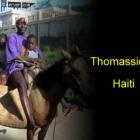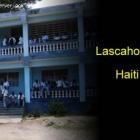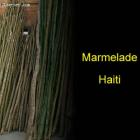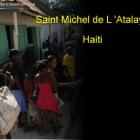ADVERTISEMENT
food - Haiti Observer Blog
food, Haiti Observer Blog. Read the following articles about food
Livestock Identification and Control of Slaughter in Haiti
Haiti's livestock plays an important role in the country's agriculture sector. From poultry to cattle, Haiti is able to export millions of kilos of animal meat a year. But this has been dramatically decreasing through the years because of the lack proper slaughter houses and the poor conditions of livestock due to untreated diseases.
In line with the Martelly administration's efforts in improving and developing the country's agriculture through livestock, especially in the rural areas, Haiti's Secretary of State for Animal Production of Ministry of Agriculture, Natural Resources and Rural Development (MARNDR) organized preparatory workshop for farmers in August on the upcoming launch of a national system for livestock identification and control of slaughter.
Leopard Capital Gives Haiti its First Private Equity Fund
Leopard Capital has inked a deal with the International Finance Corporation (IFC) to set up the first private equity fund to re-energize Haitian small and mid-size enterprises (SMEs) wiped out by the 2010 earthquake.
With a goal of securing $40 to $75 million to re-capitalize Haitian businesses, the Leopard Haiti Fund (LHF) has attracted $20 million in funding from three development banks: IFC, LHF's senior partner, has invested $8.5 million; the Netherlands Development Finance Company (FMO) $8.5 million; and Multilateral Investment Fund (MIF) $3.0 million.
LHF will pour financing into four potential-growth areas: food manufacturing, sustainable energy, tourism, and low-income housing. The bulk of LHF's financial resources will help already-open businesses grow by re-capitalizing operations and restoring structural damage. A portion of LHF's investment funds will support SMEs and new businesses.
MOCA Cafe, Best Haitian Cuisine in North Miami
When speaking of Haitian cuisine, the Moca Café and Lounge is the first and best place that comes to mind. It is located in the downtown area of North Miami and is named after the nearby North Miami Museum of Contemporary Art. They offer authentic Haitian dishes and is a good place for a taste of the famous Haitian Creole.
MOCA Cafe was recently renovated where they went for a more stylish and contemporary look with its new sky-high ceilings, glossy tables and black leather benches and of course, upbeat Haitian music in the background. Moca is run by owners' Hamler R. Noel and Jean M. Cerenord who have been business partners for about seventeen years.
Launching of New Artificial Lakes by President Michael Martelly in Baie-de-Henne
The Northwest region of Haiti, which has been suffering from prolonged drought periods, will be bound to experience a new change altogether after construction of artificial lakes. The project which involved the construction of over 160 artificial lakes was well appreciated by the local dwellers that would use the new resource for fishing, watering their animals and using it for irrigation. With the established artificial lakes up and running, local dwellers will be in a position to adequately suffice their food needs and earn some income from the economic activities promoted by the new resource in the region, President Martelly said.
HASCO And Its Past Operations In Haiti
Haitian American Sugar Company, SA (HASCO) was one of the largest refineries in Haiti. It operated from 1912 to 1987, making it the country's oldest sugar refinery at that time. HASCO was an American business venture aimed at producing and selling sugar and other sweet products in Haiti, as well as in the United States. It was owned by Charles Steinham, Franck Copay and John Christie, who registered the company with $5 million in capital.
HASCO's operation in Haiti was not always smooth. As a matter of fact, it was affected by a political turmoil in the country in 1915. Like other American businesses in the country, HASCO reeled from the effects of the country's political challenges. Such challenges posed danger to foreign ventures in the country and it was believed to have been the cause of the U.S. marine invasion in 1915. The U.S. occupation lasted for 19 years.
Our objective is to share with you news and information about Haiti and the people of Haiti. Traditions, habits and the way we were or grew are alive in this site. We highly recommend that you Subscribe to our Newsletter and also share with us some of the things that are memorable and made us unique people.

 Thomassique, Haiti
Thomassique, Haiti  Haitian Creole Translation
Haitian Creole Translation  Lascahobas, Haiti
Lascahobas, Haiti  Marmelade, Haiti
Marmelade, Haiti  Saint Michel de L 'Atalaye
Saint Michel de L 'Atalaye